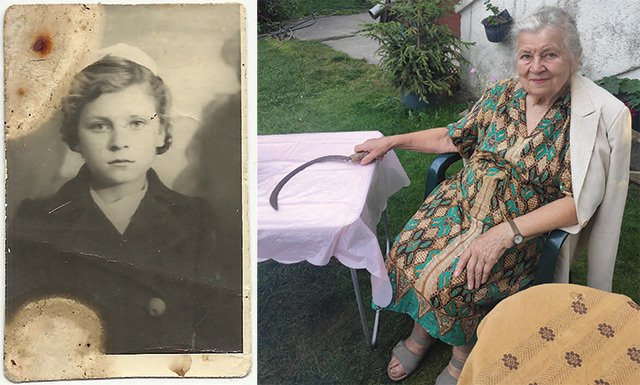Real Lives: Surviving the War in the Soviet Union: recollections of a child deportee
Historian feature

Irena Persak: Surviving the Second World War in the Soviet Union
This 'Real Lives' piece is based on a series of interviews Annette Ormanczyk carried out in 2019 with Mrs Irena Persak, who was deported as a five-year-old child with her family in February 1940. As well as offering a fascinating personal account of life in the Soviet Union during the Second World War, many of her experiences are common to those Poles who subsequently made their homes in the UK following their war service. Mrs Persak has spoken about her experiences in Poland, but there is no English-language account of her story – until now.
Our series ‘Real Lives’ seeks to put the story of the ordinary person into our great historical narrative. We are all part of the rich fabric of the communities in which we live and we are affected to greater and lesser degrees by the big events that happen on a daily basis. Sometimes we might even play a part in the big events, although our names are not recorded, while on other occasions we are witnesses to events and times which we would now consider remarkable. Sometimes our regular lives are the perfect illustration of how people live at any given time – but all our lives matter and we want to celebrate some of those lives here. If you have any people that you think might also fit this category and would like to write about them, please do contact: martin.hoare@history.org.uk
‘I was born in 1934 in Stojanów, a village of dewy fields, dark forests and with the best ice cream shop in the world!’ Begins Irena. Located some eighty kilometres north-east of Lviv, Stojanów sits on the edge of the Wołyń region, in present-day Ukraine. ‘My mother’s family had lived in Wołyń for generations and she spoke Ukrainian as well as Polish. She loved that land and she loved to talk…’ smiles Irena. ‘My father’s family, however, were ‘new’ settlers, who had headed East in the 1920s to take advantage of the relative ease and low cost of land purchase there. Theirs was a farming family, simple but industrious.’
Poland had re-emerged as a sovereign state from the ashes of the First World War, but the establishment of its borders proved challenging. In the east, Wołyń, having fallen within the Polish-Lithuanian Commonwealth in the early modern period, became part of Poland once more after the Polish-Soviet War of 1919–20, with many veterans of that conflict being granted land there as a reward for their service. Although the Polish presence in Wołyń subsequently increased, its inhabitants remained predominantly Ukrainian, and included ethnic Germans, Czechs and Jews. The region’s ‘return’ to Poland proved to be short-lived, however. In September 1939, in accordance with the Ribbentrop-Molotov Pact signed the previous month, the Soviet Union occupied the eastern half of Poland. Poland effectively ceased to exist and Irena and her family automatically became Soviet citizens...
This resource is FREE to all registered users of the website
If you are not already registered you can sign up for FREE Basic Website Access or Join the HA to access this content.

